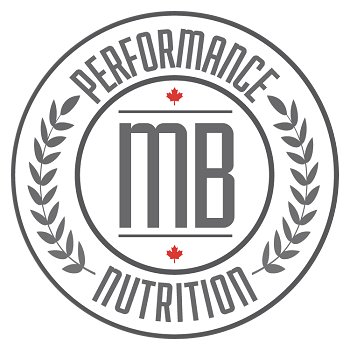Last updated on January 11th, 2024
You may have noticed that I like to talk about gut health and poop a lot. But what happens if your poop isn’t normal? What are you supposed to do if you suffer from constipation? Let’s talk about what to eat if you get constipated.
Constipation is the opposite of diarrhea – it’s when stool tends to stick around longer than necessary. Often it’s drier, lumpier, and harder than normal, and may be difficult to pass.
Constipation often comes along with abdominal pain and bloating. And can be common in people with certain gut issues, like irritable bowel syndrome (IBS). It’s also common in endurance athletes, because exercise shunts blood away from the GI tract, to the muscles, and raises your core temperature. This increased temperature and decreased blood to your internal organs can disrupt the intestinal lining and set off an inflammatory response.
About 14-24% of adults experience constipation. Constipation becomes chronic when it happens at least three times per week for three months.
Constipation can be caused by diet or stress, and even changes to our daily routine. Sometimes the culprit is a medical condition or medications. And sometimes there can be a structural problem with the gut. Many times the cause is unknown. Remember, intense exercise is a form of stress.
Whether you know why or not, there are some things you can do if you get constipated.
1 – If You Get Constipated, Eat more fibre
You’ve probably heard to eat more prunes (and figs and dates) if you get constipated.
Why is that?
It comes down to fibre.
Dietary fibre is a type of plant-based carbohydrate that you can’t digest and absorb. Unlike cows, humans don’t have the digestive enzymes to break it down. And that’s a good thing!
Even though you can’t digest it yourself, fibre is very important for your gut health for two reasons.
First, fibre helps to push things through your system (and out the other end). Second, fibre is an important food for feeding the friendly microbes in your gut.
There are two kinds of fibre: soluble and insoluble.
Soluble fibre dissolves in water to make a gel-like consistency. It can soften and bulk up the stool; this is the kind of fibre that you want to focus on for helping with constipation. Soluble fibre is found in legumes (beans, peas, lentils), fruit (apples, bananas, berries, citrus, pears, etc.), vegetables (broccoli, carrots, spinach, etc.), and grains like oats.
Psyllium is a soluble non-fermenting fibre from corn husks. It’s been shown to help soften stools and produce a laxative effect.
Insoluble fibre, on the other hand, holds onto water and can help to push things through the gut and get things moving. It’s the kind found in the skins and seeds of fruits and vegetables like asparagus, broccoli, celery, zucchini, as well as the skins of apples, pears, and potatoes.
It’s recommended that adults consume between 20-35 grams of fibre per day.
If you are going to increase your fibre intake, make sure to do it gradually. Radically changing your diet can make things worse!
And, it’s also very important to combine increased fibre intake with my next point to drink more fluids.
NOTE: There is conflicting evidence on how fibre affects constipation. In some cases, less insoluble fibre may be better, especially if you have certain digestive issues. So, make sure you’re monitoring how your diet affects your gut health and act accordingly. And don’t be afraid to see your healthcare provider when necessary.
2 – If You Get Constipated, Drink more fluids
Since constipated stools are hard and dry, drinking more fluids can help keep everything hydrated and moist. This is especially true when trying to maintain a healthy gut every day, rather than when trying to deal with the problem of constipation after it has started.
And it doesn’t only have to be water – watery foods like soups, and some fruits and vegetables can also contribute to your fluid intake.
Always ensure you’re well hydrated, and drinking according to thirst; this is recommended for gut health as well as overall health.
3 – Probiotics
Probiotics are beneficial microbes that come in fermented foods and supplements. They have a number of effects on gut health and constipation. They affect gut transit time (how fast food goes through us), increase the number of bowel movements per week, and help to soften stools to make them easier to pass.
Probiotic foods (and drinks) include fermented vegetables (like sauerkraut and kimchi), miso, kefir, and kombucha.
More research is needed when it comes to recommending a specific probiotic supplement or strain. If you’re going to take supplements, make sure to read the label to ensure that it’s safe for you. And take it as directed.
4 – Lifestyle
Some studies show a gut benefit from regular exercise. Ideally, aim to exercise for at least 30 minutes most days.
In terms of stress, when you’re stressed, it often affects your digestive system. The connection between your gut and your brain is so strong, researchers have coined the term “gut-brain axis.”
By better managing stress, you can help to reduce emotional and physical issues (like gut issues) that may result from stress. Try things like meditation, deep breathing, and exercise.
And last but not least – make sure to go when you need to go! Don’t hold it in because that can make things worse.
Conclusion
Optimal digestion is so important for overall health. Constipation is a common problem.
Increasing your fibre and water intake and boosting your friendly gut microbes are key things you can do to help things move along if you get constipated.
And don’t forget how lifestyle habits can affect your physical health! Exercise, stress management, and going to the bathroom regularly can also help you maintain great gut health.
Have you found that fibre, water, or probiotics affect your gut health? What about exercise, stress, and regular bathroom trips? I’d love to know in the comments below!
References:
LINK: https://www.dietvsdisease.org/chronic-constipation-remedies-for-relief/
LINK: https://www.precisionnutrition.com/research-constipation-fiber
LINK: https://medlineplus.gov/ency/article/002136.htm
LINK: https://www.health.harvard.edu/blog/probiotics-may-ease-constipation-201408217377
LINK: https://www.health.harvard.edu/newsletter_article/6-ways-to-enjoy-fiber-in-your-diet


